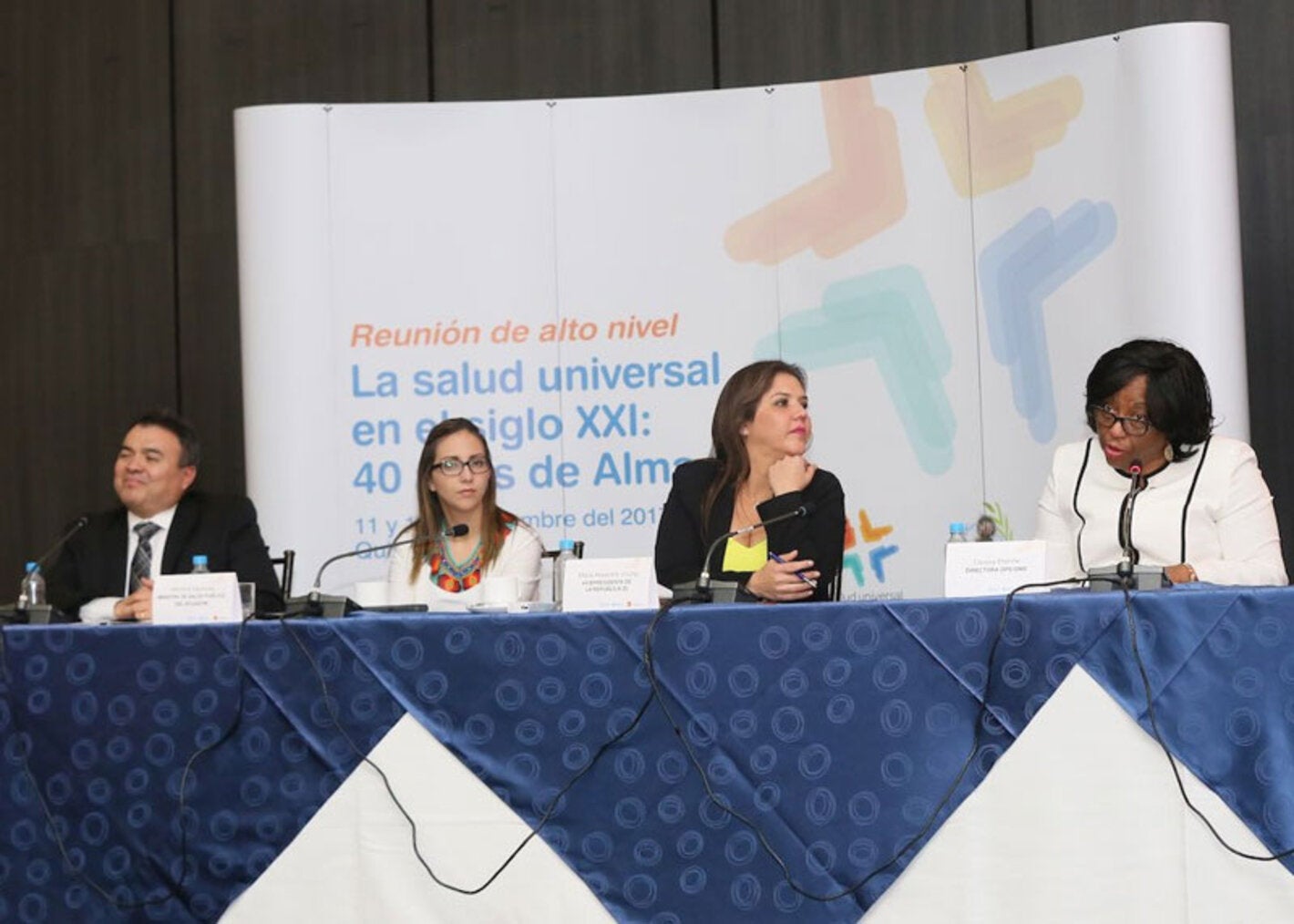
Quito, Ecuador, December 12, 2017 (PAHO / WHO) - A regional movement for universal health was launched here today by representatives of government, academia, civil society and experts from some thirty countries and territories of the Americas to identify obstacles and generate alliances to help countries reach the goal of health for all by 2030, without leaving anyone behind.
The Director of the Pan American Health Organization (PAHO), Carissa F. Etienne, affirmed that "universal health is more necessary than ever" and said that the way to achieve it "is not easy, but it is possible and urgent".
Forty years after the Declaration of Alma-Ata, which promoted the values of the right to health, equity and solidarity, the region of the Americas continues to be one of the most inequitable in the world. A third of the population still faces barriers to accessing health services.
"Guaranteeing the right to health means eliminating all kinds of barriers to accessing services," Etienne said at the regional meeting on universal health in Quito. She stressed the need to accelerate the transformation of health systems to be comprehensive, of high quality, and focused on the needs of the population.
Verónica Espinosa, Minister of Health of Ecuador, said the meeting was an opportunity to reaffirm the commitment to the principles of the Declaration of Alma-Ata and marks the beginning of a year to perfect them. "We have never before had as much technology, knowledge and political will as we do now," she said.
Espinosa said that "we have finite resources, but infinite needs," noting that political will, dialogue and greater efforts will be needed to advance toward universal health, which can be achieved "from the territory, with the people , for the people and with renovated health care systems."
Launched on the World Day of Universal Health Coverage, the initiative, called the Regional Universal Health Forum in the 21st century: 40 years of Alma-Ata, is composed of representatives of government, academia, civil society and experts from around thirty countries and territories of the region.
The Vice President of Ecuador, María Alejandra Vicuña, confirmed the commitment of her country to continue working to achieve universal health and sustainable development. This requires eradicating the structural causes of poverty, one of them being the lack of access to health. "We cannot talk about guaranteeing the right to health without safe water and sanitation for all, without safe habitat and decent housing," she said.
A high level commission will conduct the activities of the movement and draw up recommendations to guide the way forward to achieve access and health coverage for all by 2030. PAHO will act as the technical secretariat of the Forum.



